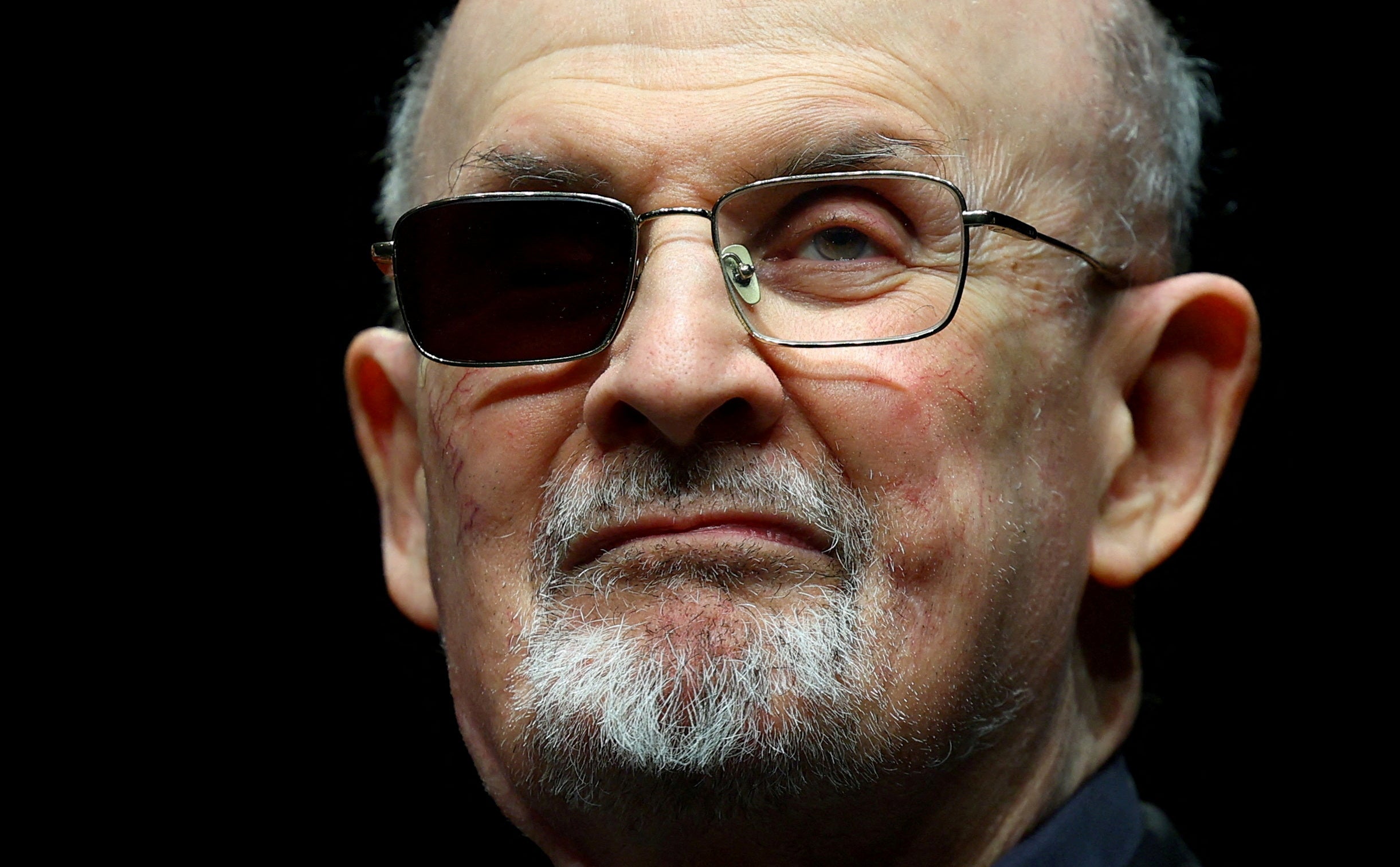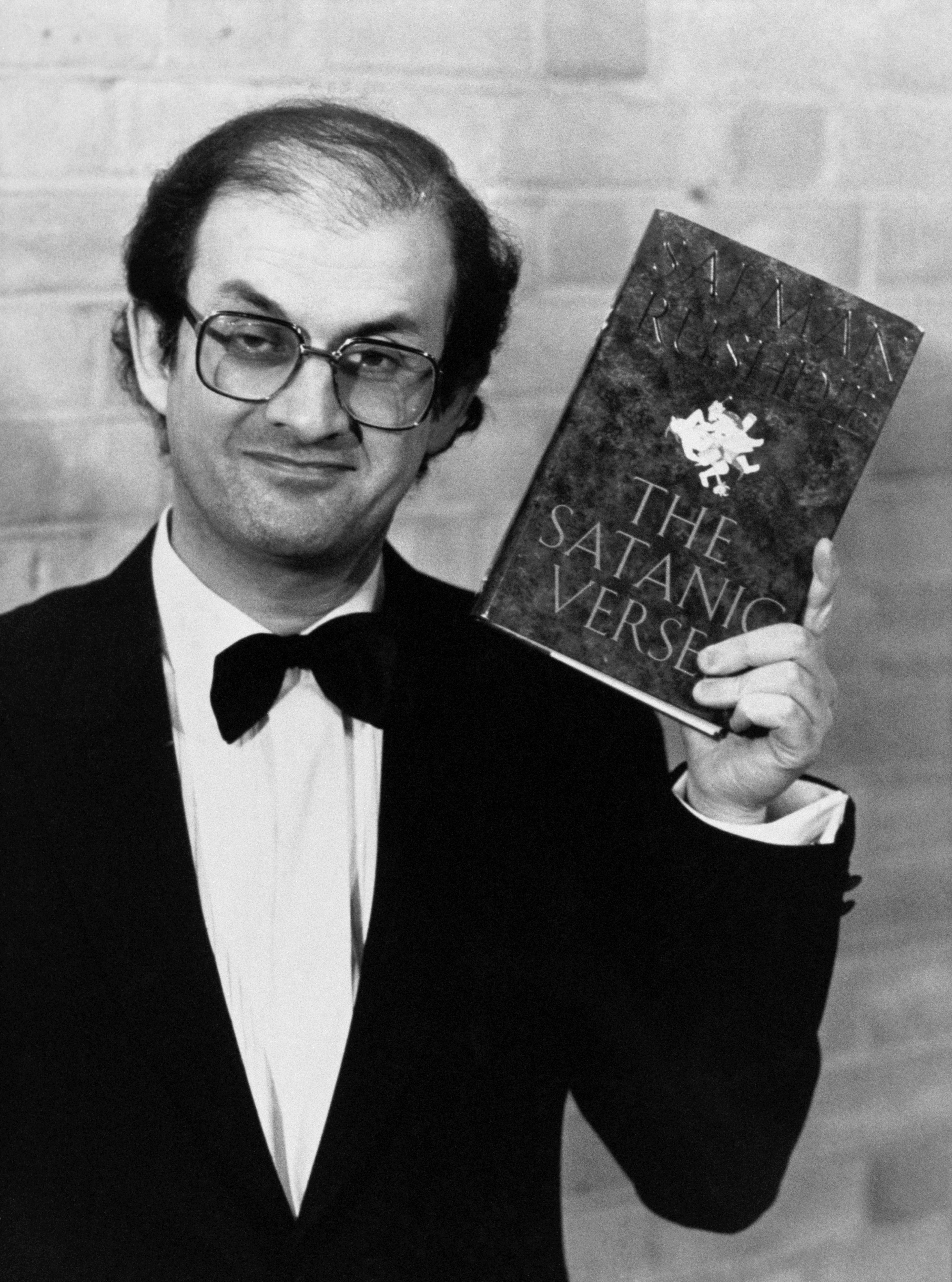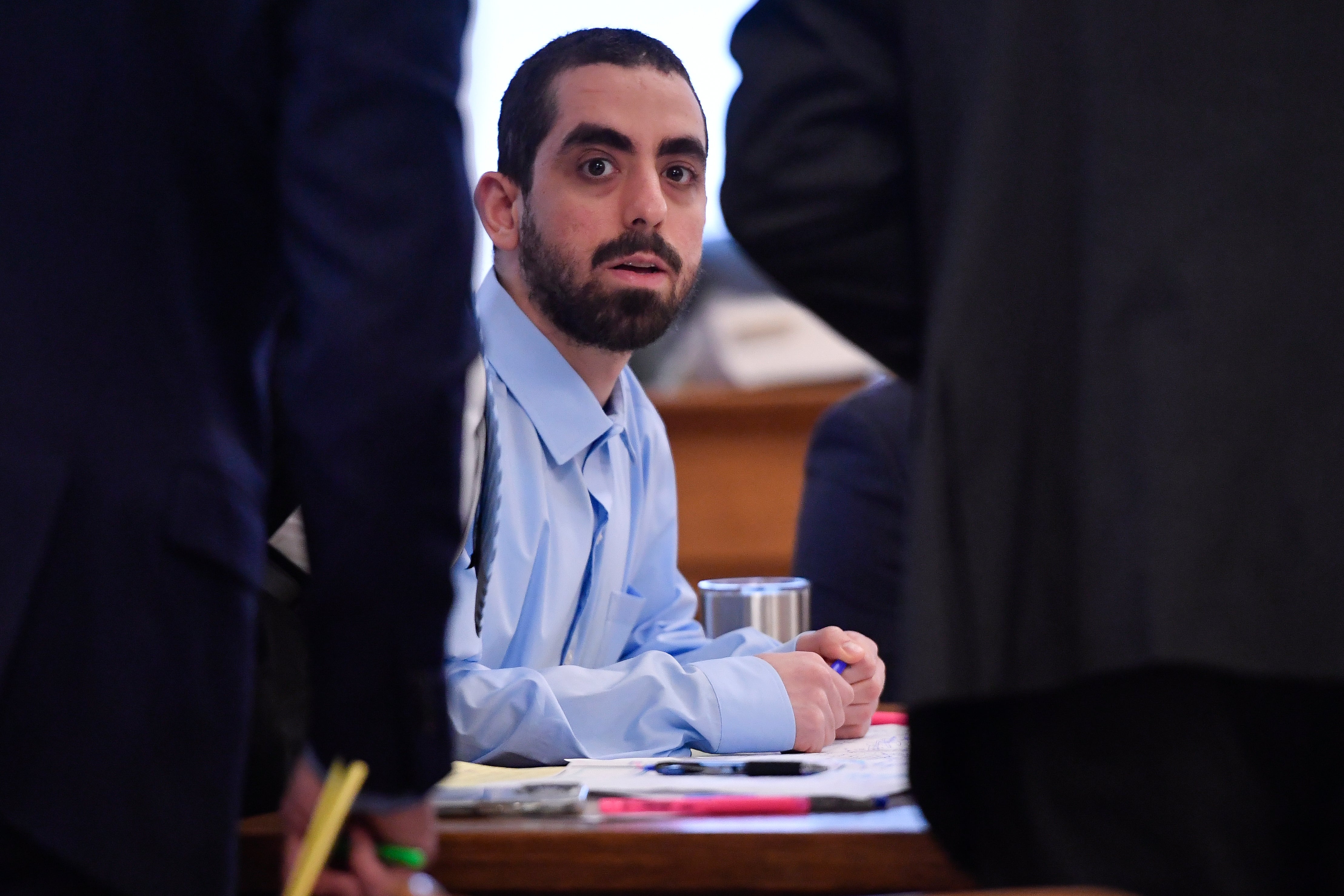The trial of Hadi Matar, the man who attacked Salman Rushdie in 2022, is set to begin, with a tricky jury selection underway.
The India-born British-American author, 77, narrowly avoided death but lost sight in his right eye after he was stabbed on stage during a public lecture on free speech at the Chautauqua Institution in New York state in August 2022.
“There are many blows, to my neck, to my chest, to my eye, everywhere,” Rushdie wrote in his memoir Knife: Meditations After an Attempted Murder, describing the attack. “I feel my legs give way, and I fall.”
Henry Reese, who was moderating the Chautauqua Institution event, was also injured in the attack.
Matar, 27, has pled not guilty to charges of second-degree attempted murder and second-degree assault.
If convicted, he faces up to 25 years in prison.

Matar, who was born in the US but has dual Lebanese citizenship, told The New York Post in a 2022 interview from the Chautauqua County Jail that he did not think Rushdie was “a very good person”, adding that he believed the author was “someone who attacked Islam, he attacked their beliefs, the belief systems”.
Matar admitted he had not read much of Rushdie’s writing. He had only read “a couple pages” of his controversial work The Satanic Verses.
Rushdie has lived under the threat of violence since 1988 when The Satanic Verses was published and drew protests from many Muslims around the world who considered it blasphemous for its alleged depiction of Prophet Muhammad. Iran’s leader, Ayatollah Ruhollah Khomeini, issued a fatwa, a religious decree, the following year, calling for Rushdie’s death, forcing the writer to live in hiding.
The Iranian government announced in 1998 that it no longer supported the fatwa, allowing Rushdie to lead a more public life.

Matar’s trial has been delayed twice, most recently after his attorney Nathaniel Barone argued his client would not get a fair trial in Chautauqua due to the publicity the attack received and the lack of an ethnically diverse community in the area.
The request was denied and Matar’s trial is set to proceed in the New York county where the stabbing took place.
However, given how the screening for jury selection has begun, it appears that selecting the 12 requisite jurors and four alternates could take time, even up to two weeks.
Questioning by presiding judge David Foley revealed that almost all of the 27 prospective jurors were aware of the details of the attack from media reports and social media, and several said they had opinions that were not likely to change based on information they would receive during the trial.
Most said they could remain impartial, and all claimed to have no anti-Muslim or anti-Mideast bias, reported The Washington Post.
“The thing that can complicate cases, especially this type of case, is when you have an alleged victim with the notoriety Rushdie has,” Barone said in an interview. “It’s not a diverse jury pool in Chautauqua County.”
Five jurors were selected on Tuesday and the selection will continue on Wednesday.

Once jury selection is complete, Rushdie is due to be one of the first witnesses to testify at the trial as is his son Zafar and Reese.
“My preference is he would be the very first in the order, the very first day, we get him in and out,” Chautauqua county district attorney Jason Schmidt said, adding that Rushdie had been engaged during witness preparation sessions.
“He’s been very cooperative. One way or the other, he’s committed to seeing this through to the end,” he said.
Matar has rejected a plea deal which would have required him to plead guilty to attempted murder in exchange for a 20-year prison sentence.
However, this would have required Matar to also plead guilty to a federal charge of attempting to provide material support to Hezbollah in Lebanon, designated a terrorist organisation by the US, which could give him an additional 20 years. He will face these charges at a later trial.







